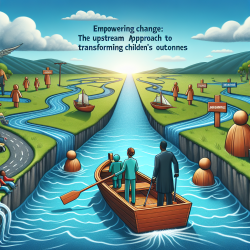The study reviewed the admission criteria of Master’s level Public Health (MlPH) programs in India from 1995 to 2021, revealing a less transdisciplinary approach than expected. Here are some key takeaways:
- 76 institutions offered 92 MlPH programs, with a 51% increase in programs from 2016 to 2021.
- These programs predominantly cater to medical and allied health disciplines, limiting opportunities for graduates from non-health backgrounds.
- Private institutions are more likely to offer inclusive admission criteria than public institutions.
- The curriculum and pedagogical methods vary significantly across institutions, lacking standardization.
For practitioners, these findings offer several opportunities for skill enhancement and advocacy:
1. Embrace a Transdisciplinary Approach
Transdisciplinarity integrates multiple disciplines to create new frameworks for solving complex public health issues. Practitioners should seek out continuing education opportunities that embrace this approach, broadening their understanding and capabilities.
2. Advocate for Inclusive Admission Criteria
Practitioners can advocate for more inclusive admission criteria in public health programs, ensuring that graduates from diverse academic backgrounds have opportunities to contribute to the field. This can be done by participating in policy discussions and collaborating with educational institutions.
3. Engage in Further Research
There is a need for more research on the impact of transdisciplinary education on public health outcomes. Practitioners can contribute to this body of knowledge by conducting studies, publishing findings, and presenting at conferences.
4. Standardize Curriculum and Pedagogy
Practitioners involved in public health education should work towards standardizing the curriculum and pedagogical methods across institutions. This will ensure that all students receive a high-quality education that prepares them for the complexities of public health practice.
In conclusion, the study underscores the need for a more inclusive and transdisciplinary approach in public health education. By embracing these recommendations, practitioners can enhance their skills and contribute to a more robust and effective public health workforce.
To read the original research paper, please follow this link: Transdisciplinarity of India’s master’s level public health programmes: evidence from admission criteria of the programmes offered since 1995










